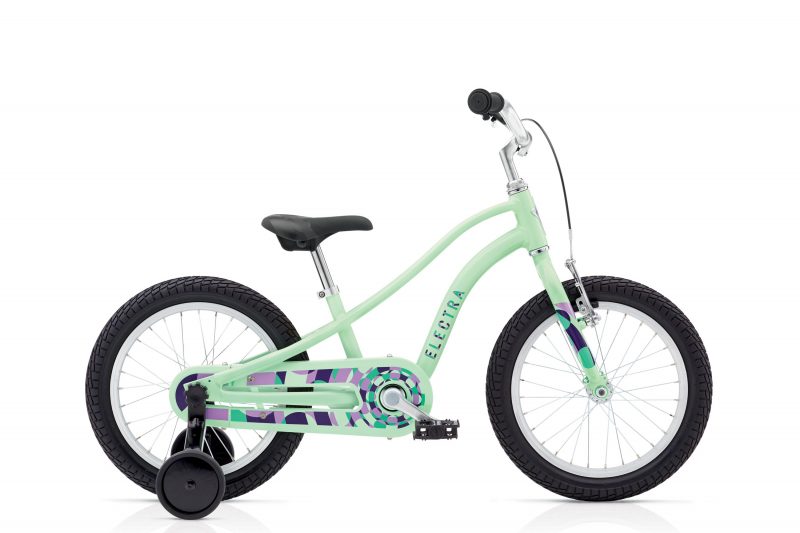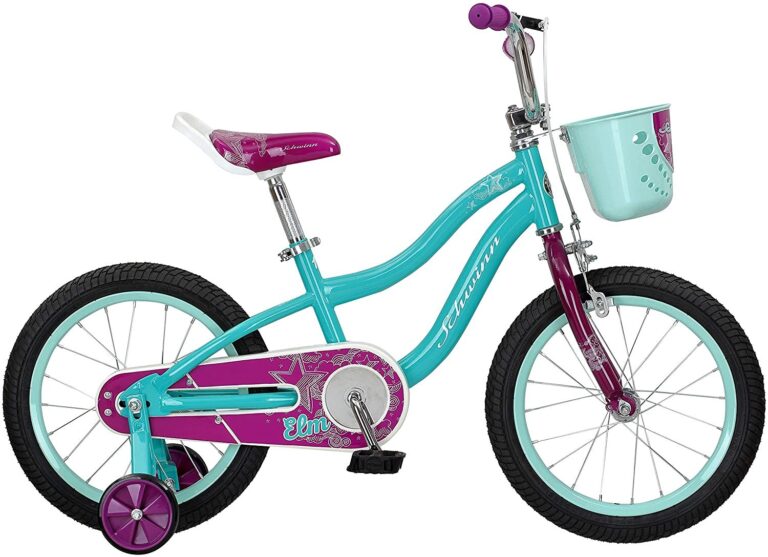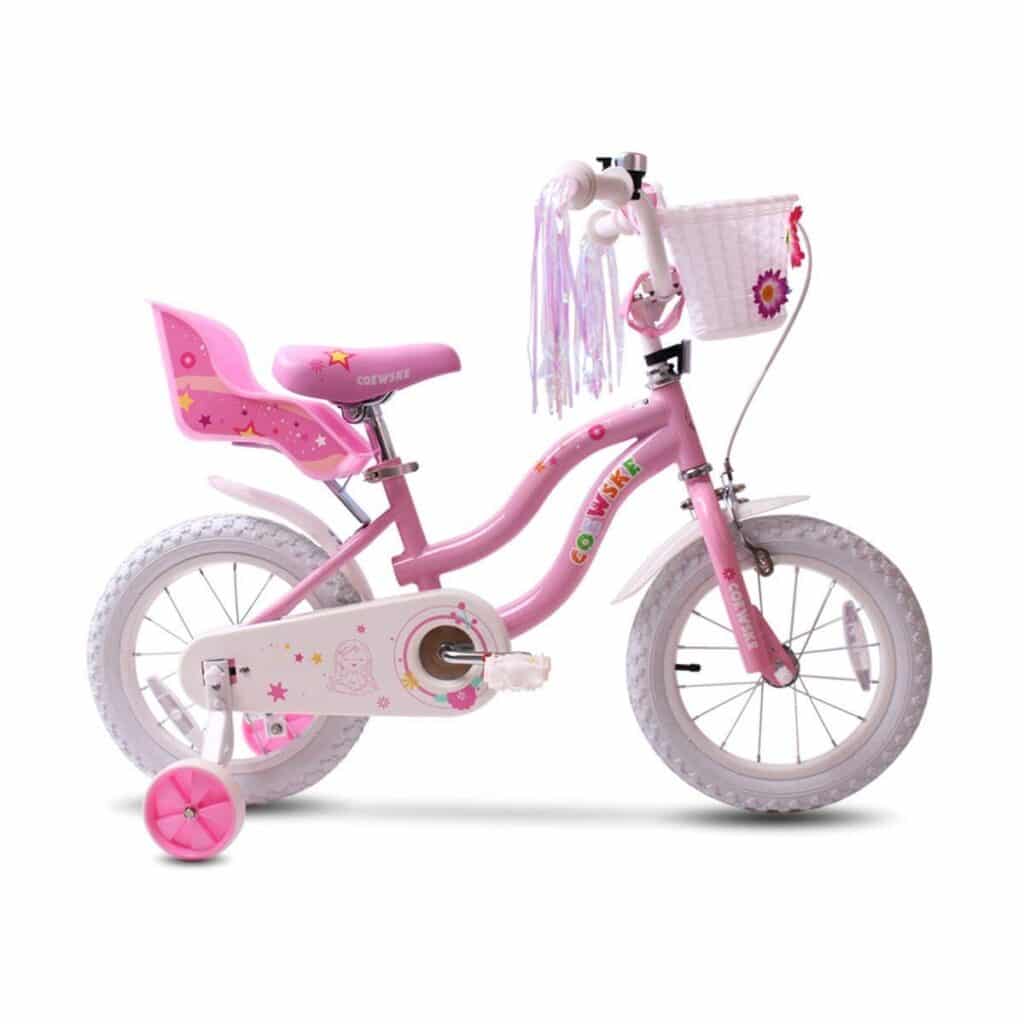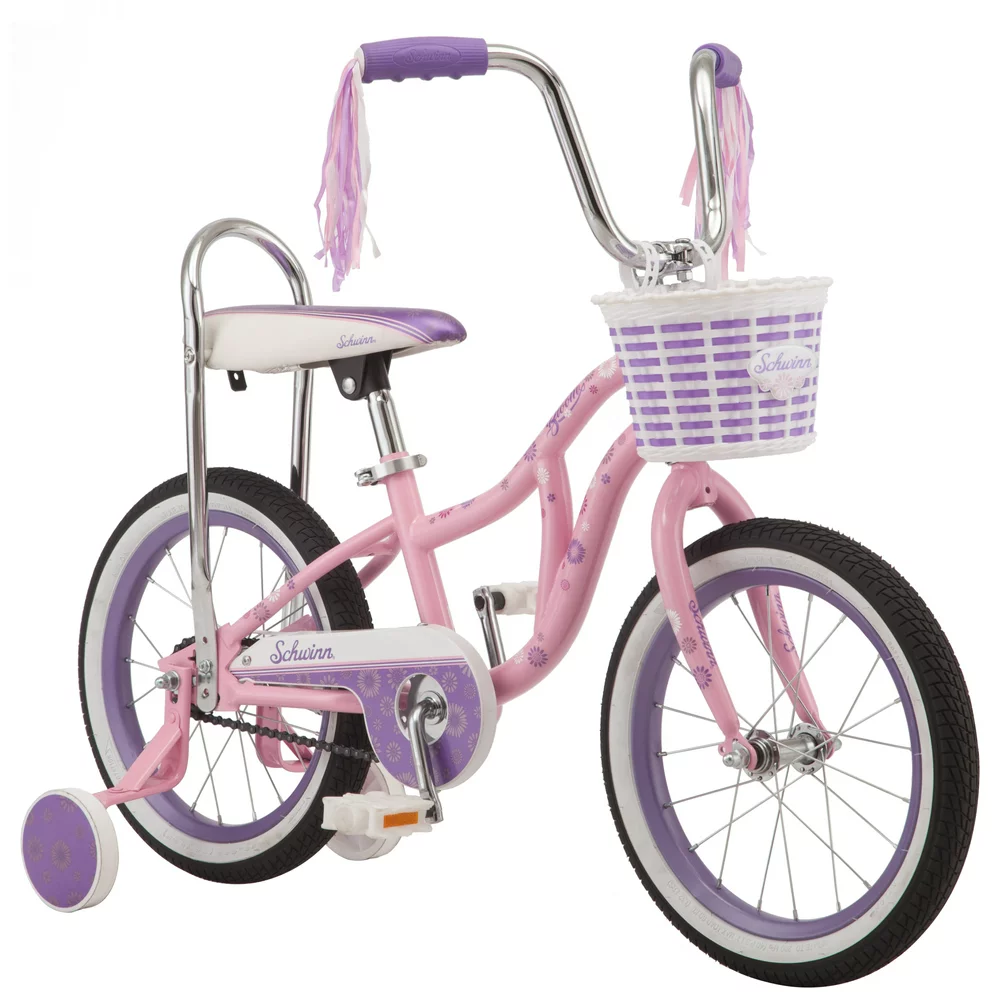I. Introduction

A. The popularity of girls’ 16-inch bikes
Girls’ 16-inch bikes have become increasingly popular in recent years, as they offer young riders a perfect balance between size and functionality. These bikes are designed to provide a smooth and comfortable riding experience for girls aged 4 to 7, allowing them to develop their confidence and skills in cycling.
B. Importance of choosing the right bike for young riders
Selecting the right bike for young riders is crucial as it directly impacts their safety, comfort, and overall enjoyment. By understanding the specific features and options available in girls’ 16-inch bikes, parents and guardians can make an informed decision that ensures a positive cycling experience for their children.
C. Objective of the article:
To provide a detailed guide on girls’ 16-inch bikes and their features This article aims to provide a comprehensive guide on girls’ 16-inch bikes, focusing on their specific characteristics, safety features, accessories, and design elements. It will help parents and guardians understand the key factors to consider before purchasing a bike for their young riders, ensuring they make the best choice possible.
II. Understanding Girls’ 16-Inch Bikes
A. Characteristics and specifications

- Frame size and materials used Girls’ 16-inch bikes typically have a frame size that is suitable for riders between 4 and 7 years old. The frames are often made from lightweight materials such as aluminum or steel, ensuring easy maneuverability and durability.
- Wheel size and tire specifications The 16-inch wheel size is ideal for young riders as it provides stability and smooth control. The tires are usually made of rubber, offering good traction on various surfaces.
- Weight and maneuverability considerations Girls’ 16-inch bikes are designed to be lightweight, allowing young riders to easily handle and control the bike. The weight of the bike should be proportionate to the child’s strength and size to ensure optimal maneuverability. B. Safety Features and Accessories
- Sturdy construction and stability Girls’ 16-inch bikes often have a sturdy construction to withstand the impact of falls and accidents. The bikes are designed to provide stability, reducing the risk of tipping over and ensuring a safe ride.
III. Choosing the Right Girls’ 16-Inch Bike
When selecting a girls’ 16-inch bike, there are several important factors to consider. These include age and height considerations, budget and value for money, and brand reputation.
A. Age and Height Considerations
It is essential to choose a bike that is suitable for the rider’s age and height. While girls’ 16-inch bikes are typically designed for children aged four to six, it is important to consider the individual child’s height and development. It is recommended to consult the bike manufacturer’s guidelines or consult with a knowledgeable salesperson to ensure the bike is an appropriate fit.
Proper bike fit is crucial for both comfort and safety. A bike that is too big or too small can hinder a child’s ability to control the bike and may cause unnecessary strain on their body. When the rider is seated on the bike, they should be able to touch the ground with their feet flat and have a slight bend in their knees.
Additionally, adjustable features on the bike can accommodate growth spurts. Look for bikes with adjustable seat heights and handlebars, allowing the bike to grow with the child and extend its usability.
B. Budget and Value for Money

Consider your budget when purchasing a girls’ 16-inch bike. The price range for these bikes can vary greatly depending on the brand, features, and materials used.
When evaluating cost versus quality, it is important to strike a balance. While it may be tempting to opt for the cheapest option available, it is crucial to ensure that the bike is of good quality and meets safety standards. Cheaply made bikes may lack durability and may not provide an enjoyable riding experience.
Identify the essential features that are necessary for a safe and comfortable ride. These may include a sturdy frame, reliable braking system, and proper wheel construction. Optional extras such as adjustable training wheels, a basket, or fun designs may enhance the bike’s appeal but may not be essential for functionality.
C. Brand and Reputation
Research reputable bike manufacturers to ensure a quality purchase. Look for well-established brands that have a track record of producing reliable, durable, and safe bikes. These brands often invest in research and development to meet industry standards and produce high-quality products.
Reading reviews and testimonials from other buyers can provide valuable insights into the bike’s performance, durability, and customer satisfaction. Online platforms and forums dedicated to bike enthusiasts are excellent resources for gathering feedback and recommendations.
Consider the warranty and customer support options offered by the manufacturer. A comprehensive warranty shows the manufacturer’s confidence in their product, and reliable customer support can be beneficial if any issues or concerns arise.
IV. Riding Experience and Practical Tips

Once you have chosen the right girls’ 16-inch bike, it is essential to focus on creating a fun and safe riding experience for the young rider. This includes developing balance, stability, confidence building, practicing safe riding practices and road etiquette, and engaging in fun activities and exploring new adventures.
A. Balance, Stability, and Confidence Building
Teach the proper technique for starting and stopping smoothly. Encourage the rider to use their feet and maintain stability by starting with one foot on the ground and pushing off to gain momentum. Gradually progress to using the pedals once they have gained confidence.
Develop balance and coordination through practice. Find a safe and flat area for the rider to practice riding and balancing on their bike. Encourage them to use their body weight to steer the bike and maintain balance.
Gradually progress towards self-sufficiency without training wheels. As the rider gains confidence and stability, gradually remove the training wheels. Start by raising them slightly so that they provide minimal support. With practice, the rider will develop the necessary balance and skills to ride without training wheels.
B. Safe Riding Practices and Road Etiquette

Teach your child basic traffic rules and road awareness. Explain the importance of stopping at stop signs, looking both ways before crossing roads, and using hand signals to indicate turns.
Emphasize the use of appropriate safety gear. Ensure your child wears a properly fitted helmet at all times. Additionally, knee and elbow pads can provide added protection during falls and accidents.
Encourage responsible behavior while riding. Teach your child to be aware of their surroundings, yield to pedestrians, and ride in a predictable manner. Emphasize the importance of not riding too close to parked cars, avoiding distractions such as wearing headphones, and not riding recklessly or too fast.
C. Fun Activities and Exploring New Adventures
Plan family bike outings and group rides. Engaging in bike rides with family and friends can make the riding experience more enjoyable and promote bonding. Select scenic routes, parks, or bike trails that offer a safe and fun environment for young riders.
Explore local parks and bike trails. Discovering new places to ride can add excitement and variety to the riding experience. Look for local parks or nature reserves that have paved paths or cycling trails suitable for young riders.
